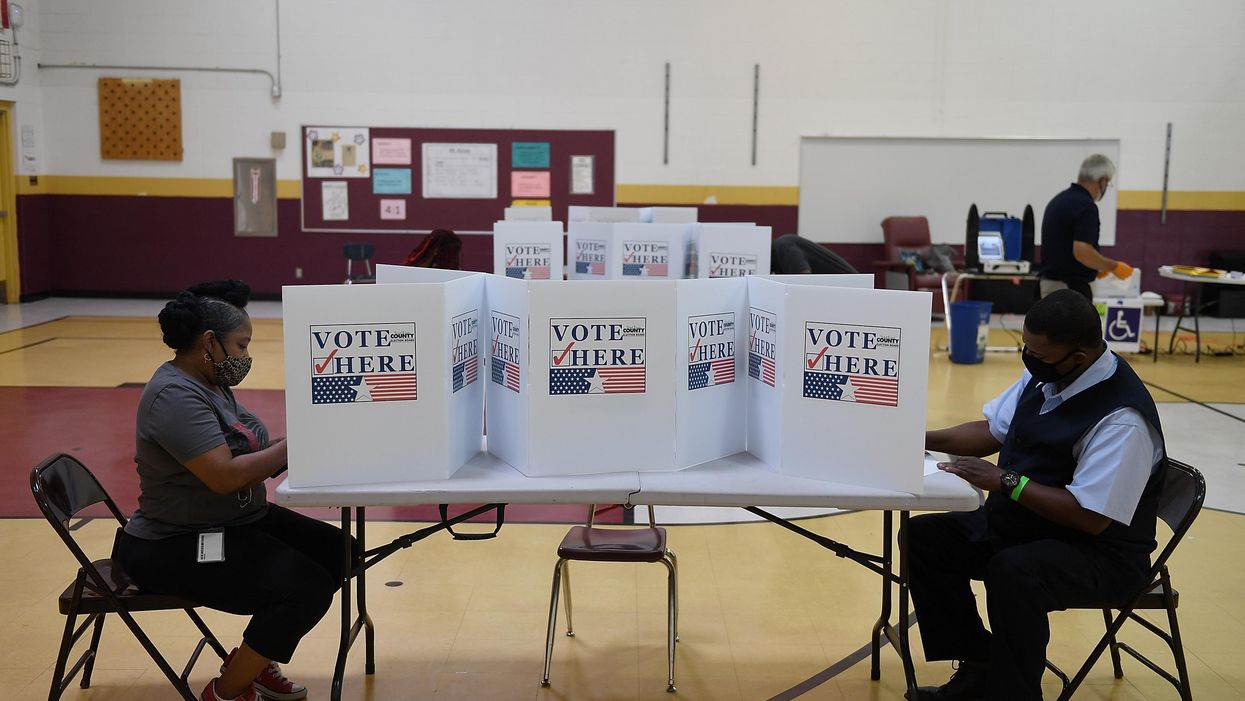Voters in Missouri will follow a new electoral system when the presidential nominating contest kicks off in 2024.
When Missouri enacted an elections law in late June, much of the reaction focused on the new voter identification requirements and the establishment of early in-person voting. But lawmakers also moved the state away from primary elections in favor of a caucus system for presidential elections.
Missouri joins a short list of states (Iowa, Nevada, North Dakota and Wyoming) and territories (American Samoa, Guam and the Virgin Islands) that use caucuses at a time when states have been abandoning the caucus system.
Though Missouri used presidential caucuses in 1992 and 1996, the state has held open primaries since the 2000 election. But, those elections were nonbinding, meaning that each party could choose whether to respect the results of the vote.
Caucuses represent a different attitude towards elections than primaries, focusing on the most enthusiastic partisans rather than widespread voter participation. The Republican and Democratic parties run the caucuses themselves, convening registered party members to discuss and assign delegates for their candidates, though procedure differs by state and party.
Primaries, on the other hand, are run by the states, with participation dictated by law. The primaries can be designated as either closed, where only voters registered for a specific party may participate, or open to all voters.
According to an analysis by PBS, while the caucus system attracts enthusiastic and knowledgeable voters, the dedication and time that’s necessary to make the system work means many voters will be alienated and excluded.
Caucuses have also been criticized for their tendency to take place for only a few hours in select locations far away from a voter’s usual precinct, meaning the disenfranchisement of voters who cannot attend for financial or logistical reasons.
Some of the states that still maintain their caucus system have tried to make them more inclusive in recent years.
- Nevada Democrats provided caucus materials in three languages — Tagalog, English and Spanish — in 2020 and allowed early voting rather than mandating voters attend in person.
- That same year, North Dakota allowed voters to participate by mail as long as the ballot was postmarked at least one week before the caucus.
- The Wyoming Democratic Party switched to a ranked choice voting system for its 2020 presidential caucus, allowing candidates to rank five candidates on their ballot. The party also allowed early voting.
Voters also tend to turn out at higher rates in primary elections than in caucuses. Between 2016 and 2020, four states — Maine, Minnesota, Colorado and Utah — switched from a caucus to the primary system. In all four states, voter turnout in the Democratic primaries increased dramatically. In Colorado, for instance, the vote count grew from about 122,000 in the 2016 presidential caucus to more than 755,000 in the 2020 primary — six times as many voters.
In 2020, the Iowa presidential caucus was marred by an inability to accurately report the results in a timely manner. The state’s Democratic Party blamed a third-party smartphone app for delaying the release of the caucus and had to enter the results manually.
The app’s developers, Shadow Inc., later apologized for the delay, saying while the app’s data collection worked as planned, its ability to transmit that information did not.
NPR reported there was not enough training or research done on the app’s capabilities before the caucus. The state had also changed reporting guidelines before the caucus, mandating that the parties submit alignment totals as well as delegate allocations, to increase transparency.
Nevada did not use the app for its caucus later that month.



















Trump & Hegseth gave Mark Kelly a huge 2028 gift